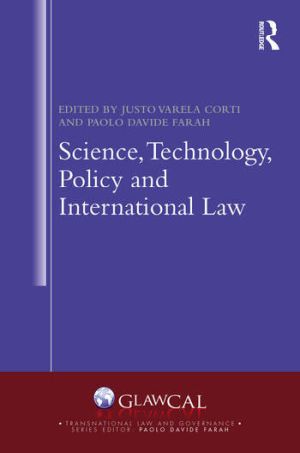
This book presents innovative insights into the intersections between science, technology and society, and particularly their regulation by the law. Departing from the idea that law and science have similar methods and objectives, the book deals with problems, and solutions, that source from these interactions: Concerns on how to integrate scientific evidence into trials, how to best regulate new technologies, or whether technological innovations could improve democratic legitimacy, create new regulatory tools or even new spaces of regulation and what is the impact on the society.
The edited collection, by building on a functionalist and comparatist approach, offers answers to how to best integrate law, science and technology in policy-making, and reviews the current attempts made at the transnational and international levels. Case studies, ranging from emerging technologies via environmental protection to statistics, are complemented by a solid theoretical framework, all of which seek to provide readers with tools for critical thinking in the reassessment of the relationship among Science, Technology, Policy and International Law.